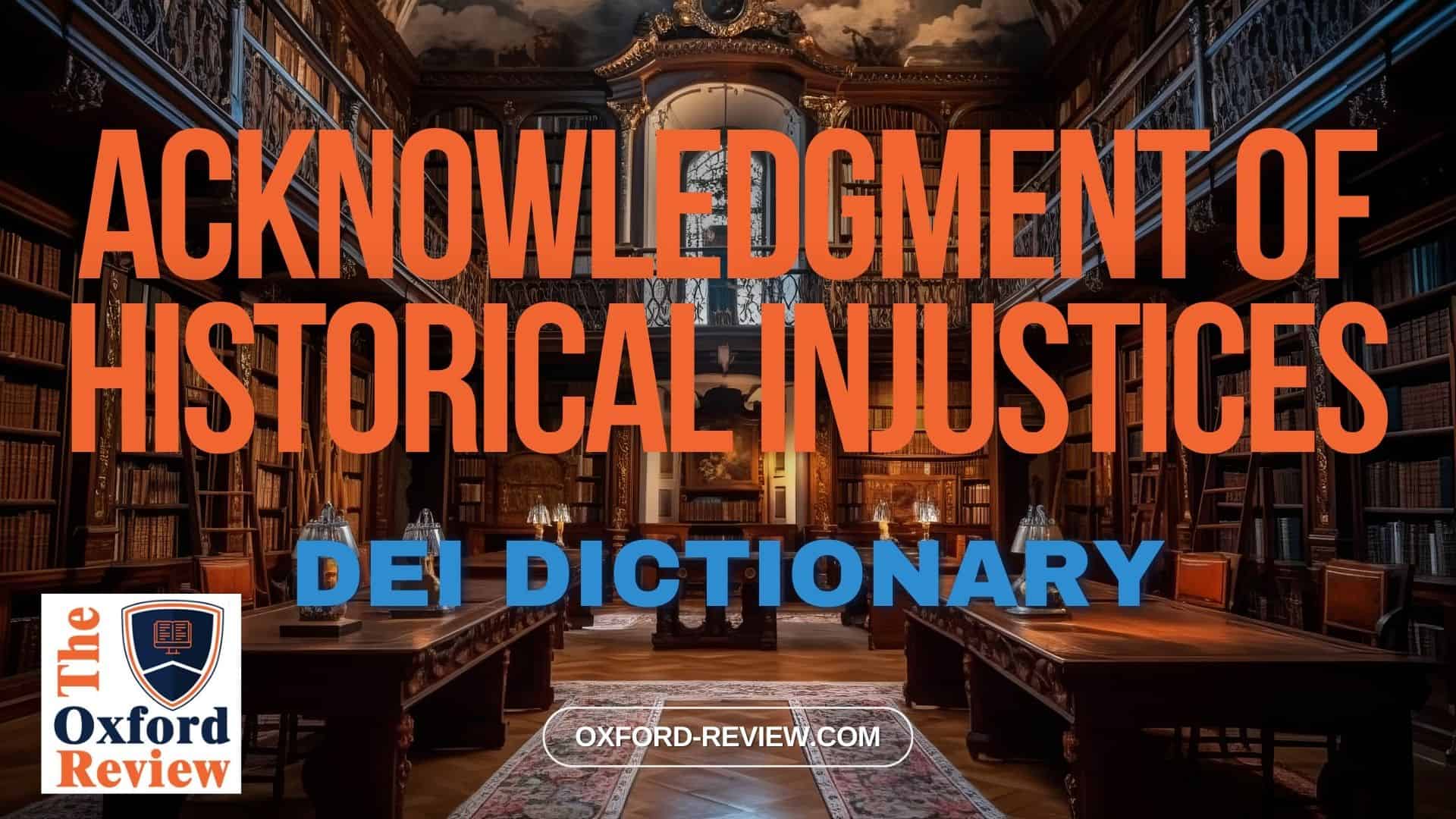Acknowledgment of Historical Injustices – Definition and Explanation

Understanding the Significance of Acknowledgement of Historical Injustices in DEI
In the realm of Diversity, Equity, and Inclusion (DEI), the acknowledgement of historical injustices plays a pivotal role in fostering a more equitable and just society. This practice involves recognising past wrongs, acknowledging their impact on marginalised communities, and taking steps towards reconciliation and healing.
Definition:
Acknowledgement of historical injustices refers to the act of recognising and accepting the wrongs and harms inflicted upon certain groups or communities in the past. These injustices often stem from systemic discrimination, colonisation, slavery, genocide, and other forms of oppression. Acknowledgement involves acknowledging the reality of these past atrocities, understanding their enduring effects on affected communities, and committing to addressing their consequences.
Importance of Acknowledgement in DEI:
- Healing and Reconciliation: Acknowledgement is a crucial step towards healing wounds inflicted by historical injustices. By acknowledging past wrongs, societies can begin the process of reconciliation, fostering understanding, empathy, and healing among affected communities.
- Education and Awareness: Acknowledgement promotes education and awareness about historical injustices, ensuring that future generations learn from the mistakes of the past and work towards a more inclusive and equitable future.
- Building Trust and Solidarity: Acknowledging historical injustices demonstrates a commitment to truth-telling and accountability, which can help build trust between different communities and foster solidarity in the pursuit of social justice.
- Addressing Systemic Inequities: By acknowledging the root causes of systemic inequities, organisations and institutions can take targeted actions to address these issues and create more equitable policies and practices.
- Empowering Marginalised Voices: Acknowledgement amplifies the voices and experiences of marginalised communities, validating their lived experiences and empowering them to participate in decision-making processes that affect their lives.
Example:
One notable example of acknowledgement of historical injustices is the official apology issued by the Canadian government to Indigenous peoples for the forced assimilation policies of the Indian Residential School system. In 2008, then-Prime Minister Stephen Harper delivered a formal apology in the Canadian Parliament, acknowledging the profound harm inflicted on Indigenous children and communities through the residential school system. This acknowledgement marked a significant step towards reconciliation and paved the way for initiatives aimed at addressing the intergenerational trauma caused by this dark chapter in Canadian history.
Conclusion:
In the journey towards creating a more inclusive and equitable society, acknowledgement of historical injustices is an essential component of DEI efforts. By recognising past wrongs, understanding their impacts, and taking concrete steps towards reconciliation, societies can move closer to healing the wounds of the past and building a more just future for all. Through education, empathy, and collective action, organisations can strive to create a world where the mistakes of history are acknowledged, learned from, and never repeated.
Be impressively well informed

Get the very latest research intelligence briefings, video research briefings, infographics and more sent direct to you as they are published
Be the most impressively well-informed and up-to-date person around...
